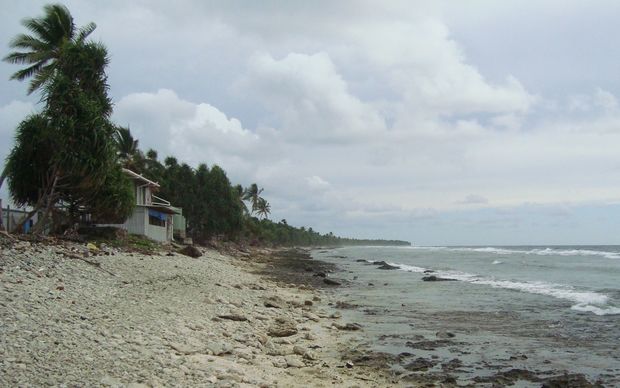
The Pacific Community has made its debut at the United Nations General Assembly in New York.
Pacific Community Director-General, Dr Colin Tukuitonga, has highlighted climate change, youth, oceans and non-communicable diseases (NCDs) in the organisation’s inaugural statement at UN headquarters, made during the UN Summit for the Adoption of the Post-2015 Development Agenda.
“The global community has adopted a new Sustainable Development Agenda, and a new global agreement on climate change is expected in Paris later this year. Let me say that from our perspective there cannot be Sustainable Development Goals without a binding agreement in Paris.
“Our region’s future prosperity and ability to effectively tackle major challenges like climate change, poverty and non-communicable diseases depend on the drive, determination and quality of learning outcomes for tomorrow’s decision makers,” Dr Tukuitonga said.
“Education is a fundamental building block for sustainable development. Eradicating poverty requires a change of practice to refocus investments across sectors towards youth, and to engage and target vulnerable youth,” he said.
The Pacific Community was granted Permanent Observer status to the UN, earning the right to participate in such global debates at the UN as of 2015.
Explaining the unique Pacific context, Dr Tukuitonga said the Pacific Islands span an ocean area of approximately 36 million square kilometres, almost 20 per cent larger than the African continent, yet only 1.5 % of this total area is land, a fact recognised by Pacific leaders in adopting a term ‘Large Ocean Island States’, Dr Tukuitonga said.
“Sustainably using the oceans, seas and marine resources is paramount. Achieving the targets enshrined in SDG 14 is essential for our region,” he told the audience of UN Member State representatives and other international organisations.
Dr Tukuitonga made a pitch for specific attention to NCDs, given that expenditure on these diseases now comprises a significant portion of many island countries’ health budgets.
“Around three quarters of all adult deaths in the Pacific are due to NCDs. The majority of such adults would be in the most economically active age bracket, while for many others, their capacity to contribute further to economic development is significantly reduced.”
Dr Tukuitonga also warned of the need for due consideration of the additional data collection and massive global investment that will be required to support effective monitoring of the SDGs, without which “most of us will be doomed to fail in our responsibilities to regularly monitor and report reliably on progress with implementing the comprehensive SDG agenda”.
In closing, Dr Tukuitonga said he was honoured to be part of a “momentous occasion” and paid tribute to the Pacific Community’s members, staff and development partners.
“Our longevity and standing as the Pacific region’s principal scientific and technical development organisation is only possible through the unity of our members, the dedication of our staff, support of Pacific people and the strength, commitment and warmth of our truly durable partnerships,” he said.
